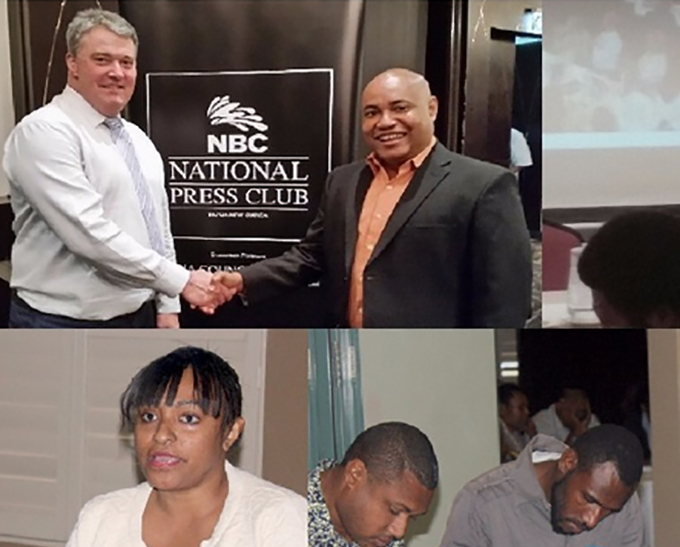
PORT MORESBY (Media Council of Papua New Guinea/Asia Pacific Report/Pacific Media Watch): Journalists, reporters and media practitioners in Papua New Guinea have been urged to use the industry’s revised code of ethics to guide their conduct during next month’s 2017 General Election.

The General Code of Ethics for the News Media was reviewed and updated by the Australian Press Council in October last year after the MCPNG approached and asked for their assistance, due to the growth of the PNG media industry and the arrival of social media and online news services.
The MCPNG board met and agreed to give the revised edition of the code its stamp of approval in December last year and distribute it to all media personnel on the eve of Papua New Guinea’s 2017 general election.
“I must thank the Australian Press Council for the collaboration and partnership by agreeing to review and revise our General Code of Ethics for the News Media — especially Professor David Weisbrot, chair of the Australian Press Council, who played a major part in the review,” said MCPNG president Alexander Rheeney.
“The revised code covers all aspects of a growing PNG media industry including online news services. I appeal to all media personnel to use it as a guide when covering the 2017 general elections, as it will ensure that the news content you produce will be of a high standard for your Papua New Guinean listeners, readers and viewers.”
The release of the revised code coincides with the launching of the MCPNG’s new website.
Rheeney said the availability of the new website would ensure that the code, the work as well as the goals and objectives of the MCPNG was now available for media industry people and the PNG public to check.
“I urge the public to log on to our website and check out the code so you are aware of the conduct that all media practitioners including journalists are expected to benchmark themselves against when covering news in Papua New Guinea.”
Should there be instances of abuse of the revised code; said Rheeney, the aggrieved member of the public should not hesitate to contact the respective media organisations or the MCPNG to take it up on their behalf.
Expatriates in police training
Meanwhile, Loop PNG reports that the National Security Advisory Committee (NSAC) chair and Chief Secretary to Government has condemned statements on social media about the recruitment of expatriates in police training.
Isaac Lupari has expressed appreciation for the recent demonstration of police training that would “strengthen police tactical response capability”.
He criticised some social media commentators who had sought to make “misleading comments” that were not related to the training demonstration.
Lupari said the National Security Advisory Committee had been briefed by Police Commissioner Gari Baki and would present its recommendations to the National Executive Council.
He said there was no such thing as a private army or security operation — these rumours were created by people with a political agenda, he claimed.
Many social media websites last week carried images of heavily armed white expatriates, often seen alongside police officers.
This work is licensed under a Creative Commons Attribution-NonCommercial 3




